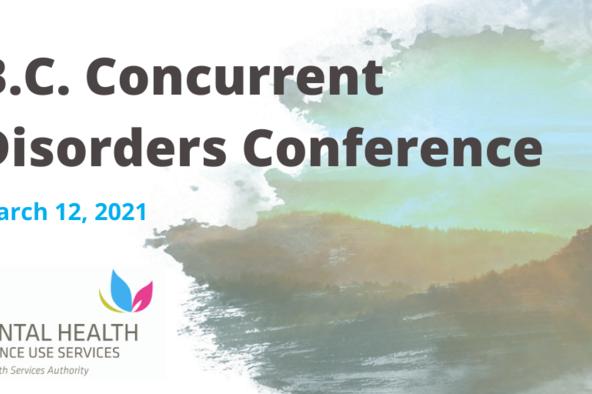BC Concurrent Disorders Conference welcomes national and international experts

"Concurrent disorder” describes a condition in which a person has both a mental illness and a substance use problem. People with complex concurrent disorders are vulnerable and very ill, requiring highly specialized, interdisciplinary treatment.

“This conference, the first of its kind in the province, gave mental health and substance use professionals across the province – and the country – an opportunity to learn from experts who are among the best and most specialized in the world in treating people who live with complex and severe mental illness and addiction,” said Dr. Vijay Seethapathy, who led conference preparation and chaired the event. Dr. Seethapathy, the chief medical officer at BC Mental Health and Substance Use Services, is a psychiatrist who specializes in concurrent disorders.
Conference keynote speakers and panellists included experts not only from BC Mental Health and Substance Use Services, but also from UBC’s Department of Psychiatry and Toronto’s Centre for Addiction and Mental Health (CAMH), as well as other leading facilities in the United Kingdom, Australia and elsewhere.
“Here in B.C., the need for effective, evidence-based treatment is particularly critical given we are at the centre of Canada’s toxic drug crisis,” said Dr. Seethapathy. “So often, an addiction presents alongside a significant mental illness and a whole host of other issues, including trauma, a mood disorder and other health problems. For our clients to get well and stay well, we need to treat the whole person, addressing the different facets of their illness. We can’t effectively treat one without treating the other. That is the crux of concurrent disorders treatment.”
The event saw multiple keynote talks, panel discussions and 14 interactive workshops exploring topics including, but not limited to, the following:
- The interface of cognitive disorders and substance use
- Motivational interviewing, music therapy, and adventure programming as treatment approaches
- The Red Fish Healing Centre model of care: Specialized inpatient care for people with concurrent disorders
- Trauma-informed practice
- Virtual health as a care innovation
- Cognitive behavioural therapy (CBT) and psychotherapy in psychosis
- Therapeutic and relational security as an approach to safety in secure facilities
- Treating mental illness and addiction in people in custody

“BC Mental Health and Substance Use Services treats some of the most vulnerable and ill people in the province,” said Lynn Pelletier, the former VP of BC Mental Health and Substance Use Services. “Treatment is only part of our provincial mandate. We are also focused on advancing mental health literacy, knowledge exchange, education, research and systems improvement related to mental health and addiction. This conference played an important role in that mandate, and I’m looking forward to this conference becoming an annual event that builds capacity amongst professionals across B.C.”
“People with complex concurrent disorders so often fall through the cracks,” said Dr. Seethapathy, “but they can and do get better with integrated, multidisciplinary treatment approaches – my colleagues and I see it every day. We believe that by learning from one another, we can help more vulnerable people get on a path to wellness and hope.”